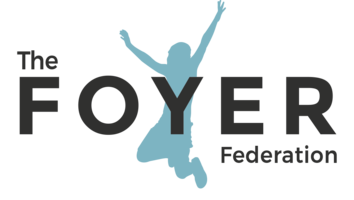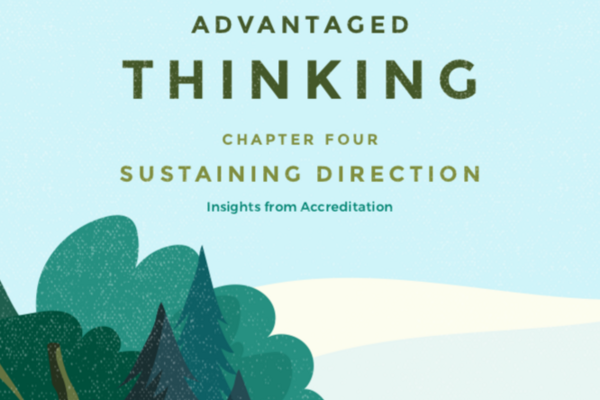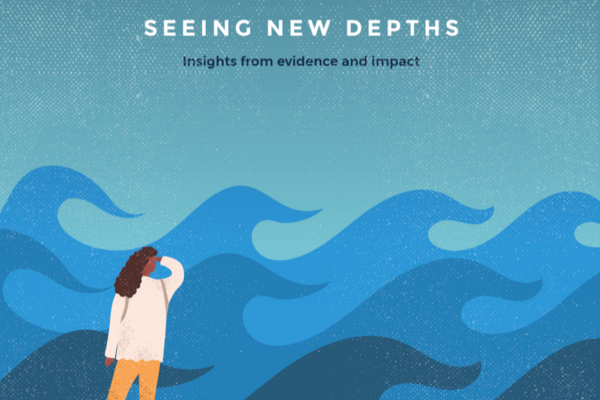
‘Strength in Solidarity’ report.
This month sees the publication of a research report I produced for the Listening Fund, exploring how the Covid-19 pandemic impacted on the listening work of 11 youth organisations from the fund in England and Scotland, including the Foyer Federation. The report identifies six findings, all of which have significance for Foyers:
- The ability to listen to young people improved how organisations responded to the crisis.
- Organisations reacted quickly to the crisis by listening to young people first.
- Organisations were able to sustain and grow their listening practices during the crisis.
- Effective listening activity promoted increased solidarity with young people.
- Young people were interested and able to influence their services and other stakeholders during the crisis, but were not always fully aware of this impact.
- Funders and decision makers can actively support the listening work of organisations to respond to a crisis.
The report’s title, ‘ Strength in Solidarity’, characterises how organisations used listening first practices to respond to the crisis. A feeling of solidarity captured the positive, relational approaches consistently described by young people and practitioners during the research. It’s a concept which can support the Advantaged Thinking work of Foyers too.
An emphasis on solidarity first came up in the research during a conversation with one of the participating practitioners, who draw attention to the connecting, caring way their organisation reached out to young people in lockdown: “showing solidarity – that we hear and respect you, we are not trying to fix you”. Showing solidarity offered a signpost to four common enablers for listening demonstrated by the majority of organisations in the research, in terms of:
- The person-centred approaches used to respond to individual needs.
- Increased frequency of contact and feedback loops focused on empathy and trust.
- Investment in codifying what had been heard in order to tailor personalised responses.
- Efforts made to understand and act on the social challenges people were experiencing.
These enablers tended to be rooted in the core ethos and culture of organisations. What the research found was that an organisation’s capacity to show solidarity appeared to be just as important for listening practice as a specialist listening post or procedure. In the words of a young person, “The way the organisation listens to me makes me feel like I have someone on my side. At a time like this, that’s been a great comfort to me.” For young people, knowing that an organisation was in solidarity with them during a challenging period had real value for their wellbeing and levels of trust.
To show solidarity feels a natural, empathetic response to a crisis. We can see this reflected in the rise of mutual aid groups and the international convergence of voices around Black Lives Matter. Solidarity carries historical resonance too, to past efforts to create social change by sharing power through collective action, and work to promote a more relational model of charity, memorably described by writer Eduardo Galeano:
“I don't believe in charity. I believe in solidarity. Charity is so vertical. It goes from the top to the bottom. Solidarity is horizontal. It respects the other person. I have a lot to learn from other people.’
(See ‘Louder than Bombs: interviews from Progressive Magazine’ by David Barsamian, 2004, p.146).
Linked to Galeano’s stress of the horizontal over the vertical, the research found that organisations dealt effectively with the pandemic by applying highly personalised listening techniques that were more dependent on the quality of 1-1 relationships than top-down transactional survey approaches. Having a strong Advantaged Thinking ethos in how you work with people really matters in a crisis.
What also struck me in the research was how solidarity offers a brilliant way to promote the asset-based features of Advantaged Thinking to a wider audience. Referring to solidarity bypasses the need for labels such as ‘asset’, ‘strength-based’ or ‘person-centred’ that often limit people’s understanding when we try to communicate the virtues of Advantaged Thinking. In a more immediate way, showing solidarity promotes the humanity of seeing people in terms of strengths rather than problems; of working with people, not doing to them; of involving people in shaping their own solutions; of investing in people’s capacity to thrive, not just survive. The features of solidarity remind me of why Foyers are great places for young people.
A focus on solidarity also shines a light on Advantaged Thinking’s Test seven - why we need to take action to achieve social change by addressing the structural challenges people experience in their lives. It’s no good trying to deliver Advantaged Thinking services without showing solidarity to tackle the social issues that disadvantage the young people who use our services. Yet I’ve often heard organisations describe the challenge of influencing social change as too much of a distraction from fundraising activity or frontline support. That might be understandable, but through the lens of solidarity it is a clear act of indifference.
Advantaged Thinkers have a responsibility to show up and lead the way with others. Indeed, a notable finding in the research is that young people really care about organisations being involved in campaigning and influencing work, even though they are not fully aware of it. Clearly, we need to do more to rise to the campaign challenge – as well as close feedback loops with the young people whose voices should drive the Advantaged Thinking campaign. The truth is, not enough young people are always in positions to lead the action. Thus the importance of initiatives such as #PowerOfYouth. This is something that the Foyer Federation’s new strategic plan, due out later this year, will seek to highlight and address.
For those wanting to lead an Advantaged Thinking approach during a crisis, a good place to start is to look at where and how a service shows increased solidarity with the people it seeks to benefit. I believe that requires what Karin Woodley from the Better Way network describes as ‘radical listening’ to really hear how well an organisation is directly connected to what matters to people. (See https://www.betterway.network/karin-woodley-radical-listening). The organisations in the Listening Fund offer powerful examples of how such ‘radical listening’ can be achieved. The report concludes with forty recommendations from the research to advance future work, along with a health check to help organisations reflect on 10 areas of listening practice that are most likely to nurture solidarity. You can read the full https://www.thelisteningfund.org/wp-content/uploads/2020/06/full-report-final-.pdf or email me for a conversation on listening practices at [email protected].
What’s great about the Foyer network is the solidarity we can show each other. Let’s keep connecting through the Foyer Federation to make Advantaged Thinking count.









